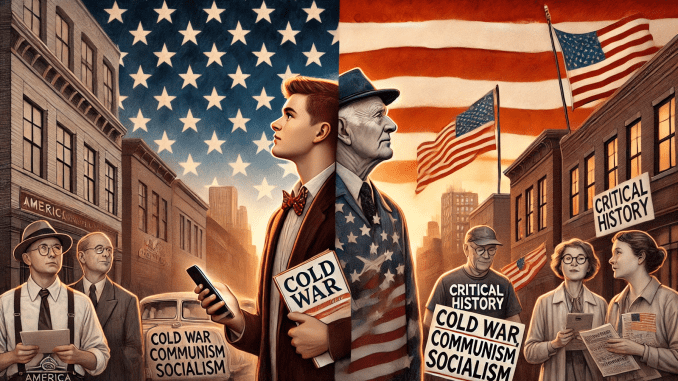
On the latest episode of HBO’s Real Time, host Bill Maher engaged in a thought-provoking discussion with Wall Street Journal columnist Peggy Noonan about the shifting attitudes toward America across generations. Maher argued that younger people today exhibit a troubling level of self-loathing when it comes to their country, and he believes that much of this stems from a lack of historical context.
Maher pointed out that older generations had a different perspective because they “read about Communism and socialism,” which gave them a clearer understanding of the contrasts between different political systems. However, he expressed concern that modern education fails to instill the same knowledge, leaving many young people with an overwhelmingly negative view of their own country.
“Another, I think, big gap between generations,” Maher stated, “it’s something you get into [in] your fantastic book a lot is that the older generations just have a more positive idea of this country, America good. And you go into the fact that a lot of this is because [older people], we read about Communism and socialism. And kids today, I don’t know what they’re teaching them in school, it doesn’t seem like a hell of a lot, but they have this idea, that they live — not all of them, of course, but that they live in a bad country that has only done bad things and is probably the worst place in the world, if they could only find a way to get out.”
Noonan, while acknowledging America’s imperfections, countered that the country remains great, with a historical record that ultimately leans toward the good. She remarked, “Not perfect. To say the least, it’s had an uneven history. But it is a great country, and, historically, has been a good country.”
Maher expanded on this, emphasizing America’s unique ability to recognize its own faults and make corrections over time, stating, “And it does self-correct. It does correct more than other places.”
Noonan then drew a distinction between healthy self-criticism and destructive self-hatred. “Self-criticism is good. Self-hatred is sick. Self-criticism could get you to a good place. Self-hatred is going to stop you dead,” she said, a sentiment with which Maher readily agreed.
The conversation highlighted a growing generational divide in national identity and historical awareness. Many older Americans, having lived through the Cold War, saw firsthand the failures of communist regimes and gained an appreciation for the freedoms and opportunities available in the United States. Meanwhile, younger generations, influenced by modern education and cultural narratives, may focus more on America’s historical shortcomings without balancing them with its successes.
Noonan’s argument about the difference between critique and self-loathing is particularly important. A nation that engages in honest self-assessment can grow and improve, but an overwhelming sense of disdain for one’s own country risks leading to disillusionment or inaction. Maher’s assertion that America possesses a unique ability to correct its mistakes underscores the idea that while flaws exist, the nation has historically demonstrated resilience and progress.
This discussion raises broader questions about historical education and national perception. Are young people being given a well-rounded understanding of America’s history—one that acknowledges both its flaws and its strengths? Or has the pendulum swung too far toward viewing the country through an overly critical lens? Maher and Noonan suggest that while self-reflection is vital, it should not come at the cost of appreciating the broader picture of what the nation represents.
Follow Elite Feed!

Leave a Reply